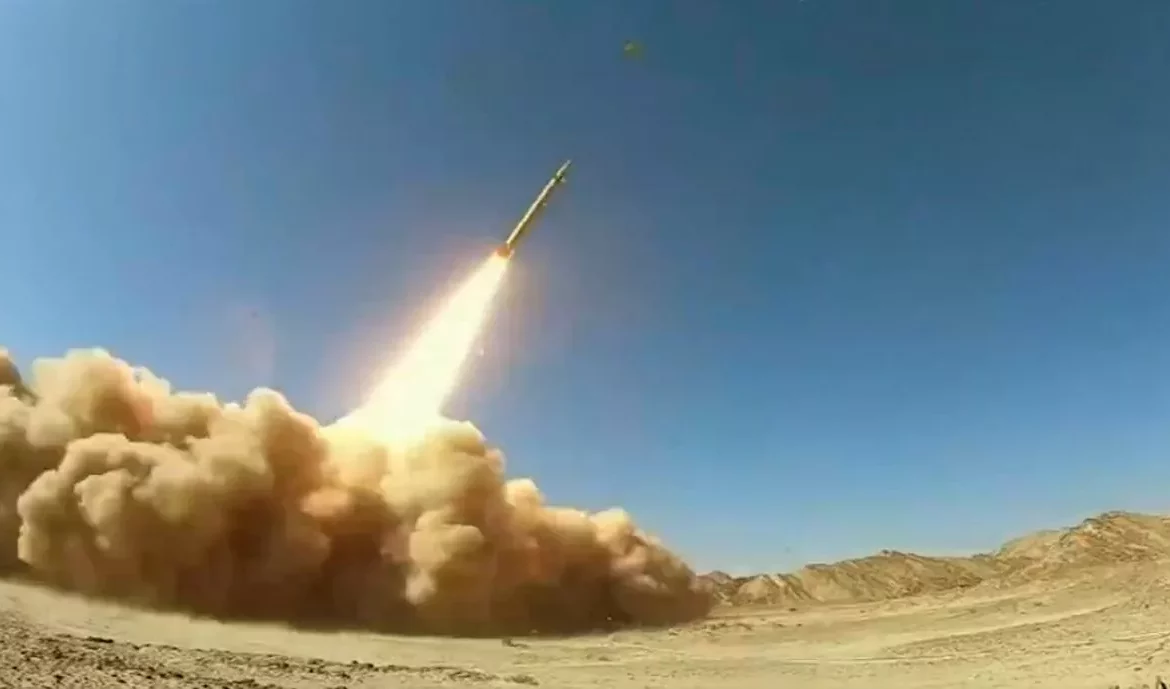The missile’s debut comes amid longstanding tensions between the Islamic Republic and the Jewish State as Israeli officials continue to warn that they will not be bound by the terms of any international agreement on Tehran’s peaceful nuclear programme.
Iranian media have released footage of the ‘Kheibarshekan’ (lit ‘Castle Buster’/’Kheibar Buster’) –a new type of long-range ballistic missile. Video provided by the Islamic Revolutionary Guard Corps (IRGC) shows the weapon’s launch, and the destruction of a mock target at a firing range.
The missile, unveiled Wednesday at an IRGC Aerospace Force event, is said to have a range of 1,450 km, within striking distance of any point in Israel – Iran’s main regional adversary, as well as virtually any US military base in the Persian Gulf and the Middle East in general.
The Kheibarshekan joins the ranks of the longest-range missiles in Iran’s arsenal, surpassed only the Shahab-3, Ghadr-110 and Emad liquid-propelled medium-range ballistic missiles (MRBMs) and the Meshkat cruise missile (all of of which have ranges of up to 2,000 km).
Peacemaker
The missile’s unveiling comes following the resumption of talks in Vienna Wednesday aimed at saving the Joint Comprehensive Plan of Action nuclear deal – a landmark international nuclear agreement committing Iran to limiting its uranium enrichment and stockpiling activities in exchange for an easing of international sanctions. The Trump administration dropped out of the deal in 2018, with the Biden White House resuming indirect talks with Tehran last year.
Israeli officials have warned repeatedly that Tel Aviv will not be bound by the terms any Iran nuclear deal. Last week, Israeli media reported that the country’s air forces had held large-scale drills simulating a “massive attack” on Iran’s nuclear facilities.
Late last year, Israel set aside a special $1.5 billion fund from its $19.2 billion defence budget to prepare for a possible attack against Iran.
Iranian officials have warned Israel repeatedly not to move forward with any strike plans, threatening to inflict “tens of thousands of billions of dollars” in damage on the Jewish State in the event of aggression, and holding a drill in December simulating a precision drone and missile strike against the Shimon Peres Negev Nuclear Research Center – the suspected birthplace of Israel’s nukes. Israel neither confirms nor denies possessing nuclear weapons, but has granted itself the unilateral authority to attack militarily any regional adversary it suspects of building or planning to build such arms. Iran vocally denies pursuing nukes or any other weapons of mass destruction, with each of its successive supreme leaders declaring them incompatible with the tenants of Islam.
Source: Sputnik



